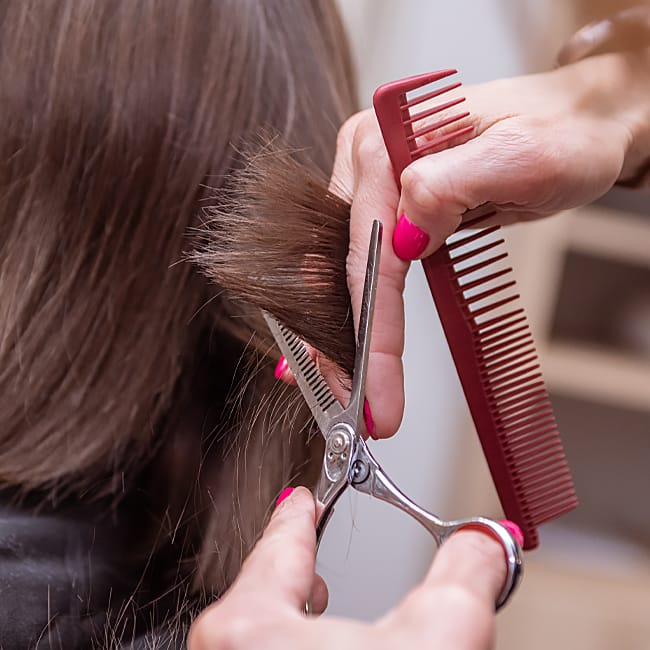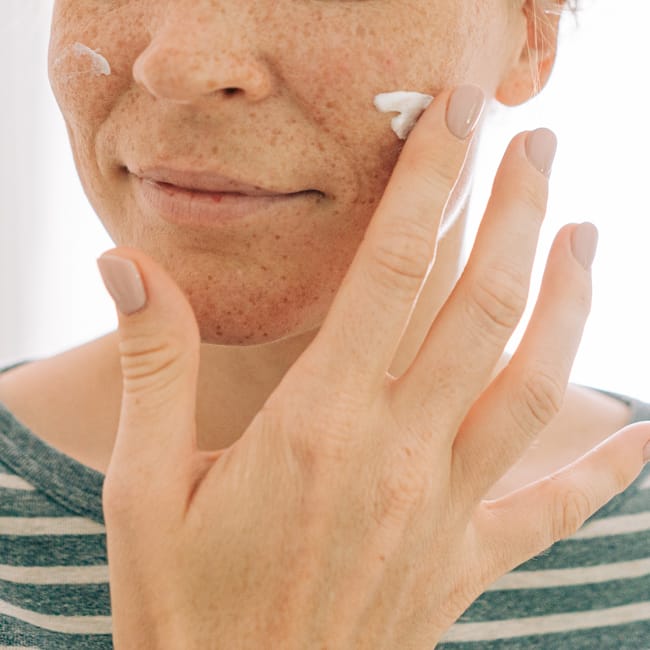SheFinds emphasizes that this review is not monetized, compensated, or sponsored in any way. This evaluation of the product is strictly based on the expertise of a beauty industry expert.
This article has been updated since its initial publish date to include more expert insight.
Serums are essential products in any great anti-aging beauty routine— whether a Hyaluronic acid one used in the evening to repair skin throughout your resting period, or a vitamin C one in the morning to protect your skin from the sun’s rays as you go about your day. We checked in with dermatologists and anti-aging skincare experts who deemed 3 particular serums (that aren’t the popular 2 listed above!) to be vital if you want smoother, more radiant and youthful-esque skin.
Read on for tips and suggestions from Dr. Elaine F. Kung, M.D., FAAD, dermatologist and founder of Future Bright Dermatology. Firstly, let’s break down why there are 3 most important serums and then get more into the 3 helpful additional ones.
View this post on Instagram
First Off, The Main Essentials— Vitamin C, Hyaluronic Acid and Retinol
Whether you’re new to anti-aging skincare or a product aficionado, you’ve definitely heard of the many benefits provided by vitamin C in the morning (helps smooth fine lines, brighten skin), Hyaluronic acid in the evening (gives plenty of moisture and hydration) and retinol used whether daily or once a week (can stimulate collagen). “The fountain of youth in skincare” aka the products most likely to help you reach your anti-aging goals, Kung says, revolve around the following checklist.
“[The products you use need to] provide sun protection from UV damage, use antioxidants as protection from UV and air pollutant damage, have building blocks for collagen synthesis, help with fine lines and wrinkles and provide moisture to repair the skin barrier,” Kung explains. With that said, let’s get into 3 other serums that can help you boost collagen, smooth your skin texture and improve its complexion, according to experts.


1. Peptides
Your body actually makes peptides, which are amino acids (aka building blocks) of proteins needed by your skin, such as collagen and elastin. Using a serum that contains peptides, Kung says, can lead to firmer, more supple and youthful-looking skin.
“Peptides are amino acids that are building blocks that can be used for collagen synthesis,” she says. “Peptides in serums or creams can penetrate the skin barrier, whereas collagen itself is too bulky.”
She recommends a peptide-based serum rather than a collagen cream since “collagen creams only sit on top of the skin as a glorified moisturizer, whereas peptides in serums have been clinically shown to help.”

2. Alpha Hydroxy Acids (AHAs)
Another common serum ingredient is one of the Alpha-Hydroxy Acids (AHAs) which are often found in foods like citric acid found in citrus fruits, glycolic acid in sugar cane, lactic acid in sour milk and tomato juice, malic acid in apples, tartaric acid in grapes, etc. In skincare, AHAs dissolve the top layer of skin to reveal and promote new skin cells beneath it.

3. Bakuchiol
Bakuchiol is an extract derived from the leaves and seeds of the babchi plant, as written by Chloe Burcham for Byrdie. This often alternative to retinol is from an herb commonly used in Indian Ayurvedic and Chinese medicines, as well as Tamil Siddha practices, to help heal, calm, and soothe the skin. This is possible thanks to its anti-inflammatory and antibacterial properties.
The more you know!


























